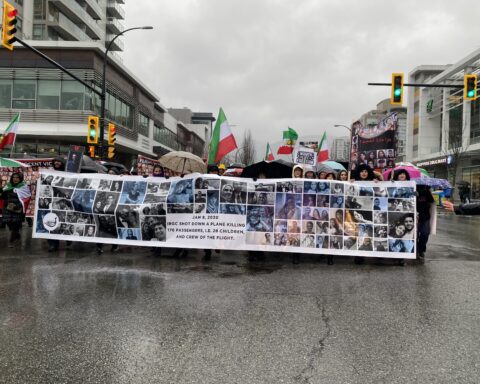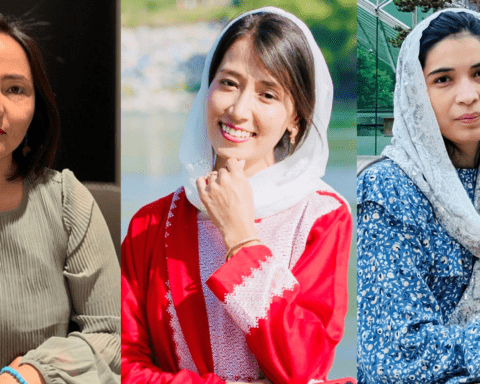I have come to know the journalist Michael Petrou over the past few years. He would sometimes call me to seek my views on terrorism when he was with Macleans magazine and I relied heavily on his book ‘Renegades’ – the story of Canadians in the Spanish Civil War – for a section of my second book on Western foreign fighters in Syria and Iraq. I happen to think he is a great writer and a solid scholar.
In a recent piece of analysis on the CBC Web site Michael noted that Afghanistan is ‘teetering on the edge of a dark abyss’ and that Canada, which lost 158 soldiers in its decade-long post 9/11 deployment, ‘should join its closest allies and return to Afghanistan.’ He argues that much progress has been made in Afghanistan since 2001 (infant mortality, a fledgling democracy, female school attendance) but that true advancement will be measured over decades. For his part, Canadian Prime Minister Justin Trudeau seems to be leaning towards a peacekeeping mission in West Africa (possibly Mali) although even there the government is waffling.
And so the question remains: should Canada recommit to Afghanistan? Great question with no easy answer, especially in the context of the bombing in Kabul on May 31 that killed over 150. I will play the classic Canadian card and straddle the fence (joke: why did the Canadian cross the road? A: to get to the middle), providing views to supporting both a yes and a no response. It is not that I am normally wishy-washy: it’s just that there are solid arguments on both sides.
Afghanistan needs the help of the international community and that community must respond.
I fully believe that we cannot abandon Afghanistan. We tried that once – after the ragtag mujahedin kicked Soviet ass (with oodles of outside help it must be added) – and look where that got us. Warlordism, brutality and the arrival of the Taliban, which in turn played genial Afghan hosts to Al Qaeda. Afghanistan became a de facto failed state (it is hard to describe the Taliban regime as a ‘state’) and we know that failed states are prime real estate for terrorist groups (Somalia, northern Nigeria, Iraq, Yemen, etc.). If we don’t want to see the rise of yet another terrorist organisation on the scale of AQ we might want to keep our presence there robust.
Besides, don’t the Afghan people deserve a normal life? Given that the Afghan government appears incapable of providing the conditions for one shouldn’t we offer, on humanitarian grounds if nothing else? We will still run into the problem of Western ways clashing with Afghan culture but surely there are universal principles we can help maintain.
On the other hand, Afghanistan is not known as the ‘graveyard of empires’ for nothing. Many have tried to tame and control the country and none have succeeded. In addition there is the problem of how long. We were there for more than ten years and while, as Michael points out, some progress has been made the place is still a mess and may be getting worse. Will we need to establish an open-ended mission? How much will it cost? Are Canadians willing to accept more casualties in a country far away and little understood? Is the Canadian military equipped (materiel and human resource-wise) to continue multiple tours for our men and women in uniform? What is the end game? How do we measure our success? What is our exit strategy? Does anyone have an answer to these? Carleton University’s Steve Saideman has an interesting blog on lessons learned the first time around.
I fear that this conundrum falls into the ‘damned if we do and damned if we don’t category’. We cannot turn our backs on Afghanistan even if we seek to measure it solely through the lens of national interests and security. Afghanistan needs the help of the international community and that community must respond.
And yet those questions are still there. Furthermore why Afghanistan and not Yemen, the Democratic Republic of Congo or the Central African Republic? Aren’t they as worthy?
Canada may be taking its time with this decision, and that may be frustrating to some, but a sober second thought is indeed required in this instance. If we are both to honour the deaths of those 158 soldiers and prevent 158 more we need to think this through.
Phil Gurski is a 30-year intelligence veteran and the author of the forthcoming The Lesser Jihads: Bringing Islamist extremism to the world.
Phil Gurski is a former terrorism analyst at the Canadian Security Intelligence Service (CSIS). He specializes in radicalization and homegrown Al Qaeda/Islamic State/Islamist-inspired extremism and has published several books, including the forthcoming When Religions Kill: how extremists justify violence through faith.” He is a member of New Canadian Media’s board of directors.





